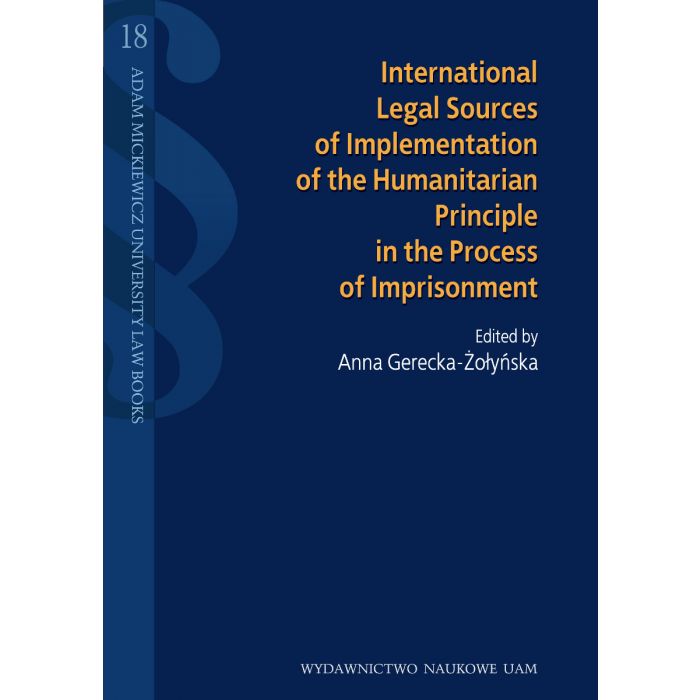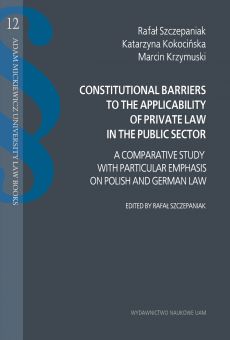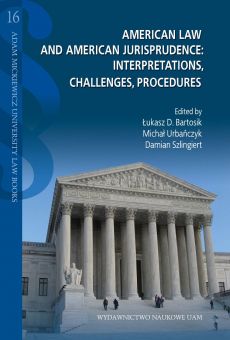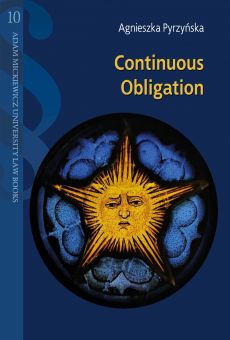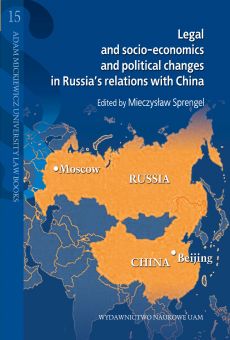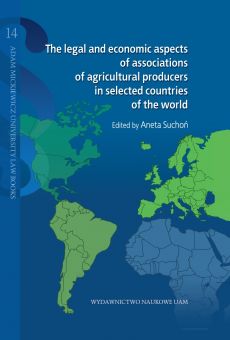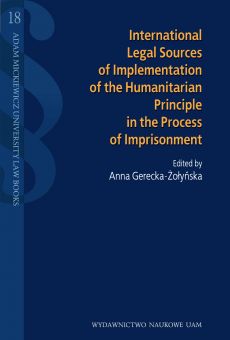International legal sources of implementation of the humanitarian principle in the process of imprisonment
- In Stock: in stock
- ISBN: 978-83-232-3893-5
- DOI: 10.14746/amup.9788323238942
- Category: Law, Adam Mickiewicz University Law Books
- Year of publication: 2021
First and foremost, the book contains an analysis of documents of international law that are legally binding in their nature (hard law) and documents containing only recommendations for the development of appropriate models in the domestic systems (soft law). The aim of the analysis is to assess the consistency, or lack thereof, with the norms of international law determining the principle of humanitarianism in various models of human rights protection and their impact on the situation of persons serving sentences of imprisonment. The discussion here is broad in scope, since it deals not only Europe, but also contrasts it with Africa and the Americas. This is also where the innovative character of the work should be seen, as no study has been produced as yet that would present the importance of the principle of humanitarianism for persons serving custodial sentences in such a comprehensive manner, covering areas with differing interpretations of human rights. The work employs a dogmatic method based on the analysis of legal sources, doctrinal views and the jurisprudence of international tribunals established to control the implementation of the idea of protecting human rights. With some caution, it can also be stated that the work uses a comparative legal method, to the extent that it refers to Italian legislation, which results from the team of authors.
Preface
Acknowledgments
Notes on Contributors
Abbreviations
CHAPTER 1
Introdution: International law and domestic law (general issues)
Tadeusz Gadkowski
1.1. International law – general characteristic
1.2. International law and domestic law
1.2.1. Theoretical concepts
1.2.2. Consequences in practice
1.3. International law in Polish legal order
1.3.1. General remarks
1.3.2. The meaning of Article 9 of the Constitution
1.3.3. International agreements
1.3.4. International custom and general principles of law
1.3.5. Resolutions of international organizations
CHAPTER 2
The issues of human rights protection mechanisms in the framework of selected international organizations
Boubacar Sidi Diallo
2.1. Introduction
2.2. Universal human rights protection mechanism in the framework of the United Nations
2.3. Regional human rights protection mechanisms
2.3.1. The European human rights protection mechanism within the framework of the Council of Europe
2.3.2. American human rights protection mechanism – within the framework of the Organization of American States
2.3.3. African human rights protection mechanism – within the framework of the OAU/African Union
2.4. Conclusions
CHAPTER 3
Detention conditions and treatment of prisoners in the case-law of the Court of Justice of the European Union and of the European Court of Human Rights
Maria Cristina Carta
3.1. The humanitarian principle in the Italian Constitutional Court case law
3.2. Multilevel protection of prisoners in the European Legal Space
3.3. Personal freedom, human dignity and rights of persons detained in prisons in the Charter of Fundamental Rights of the European Union (CFR)
3.4. The European Union’s Area of Freedom, Security and Justice (AFSJ) as a “convergence point” between the European Convention on Human Rights (ECHR) and the Charter of Fundamental Rights of the European Union
3.5. The impact of ECHR in building the European Union AFSJ
3.6. From “equivalent protection” to partial “integrated protection” in EU Law
3.7. The principles of necessity and proportionality of the penalty in post-Lisbon European Union Law
3.8. The rights of prisoners in the ECHR system
3.9. Italy’s violations of the ECHR: from the Sulejmanovic case law to the Torreggiani pilot sentence
3.10. Conclusions
CHAPTER 4
International and transnational cooperation instruments strengthening the protection and security of persons deprived of their liberty in connection with the commission of a crime
Anna Gerecka-Żołyńska
4.1. The concept of the principle of humane treatment in criminal law and in international law in the light of the status of persons detained, in pre-trial detention and deprived of their liberty by a final court judgment
4.2. The dynamic nature of recommendations regarding the legal protection of persons deprived of liberty
4.3. Report of the European Union Agency for Fundamental Rights as an example of a soft law instrument in cooperation with EU member states
4.4. Conclusions
CHAPTER 5
Implementation of the principle of humanitarian in the execution of the penalty of deprivation of liberty in the light of the international tribunals’ case law
Magdalena Zamroczyńska
5.1. Introduction
5.2. The principle of humanitarian in the case law of the European Court of Human Rights
5.2.1. Selected rulings ECHR in the field of detention conditions and treatment of prisoners
5.3. The principle of humanitarian in the jurisprudence of the Court of Justice of the European Union
5.3.1. Selected rulings CJEU in the field of detention conditions and treatment of prisoners
5.4. The principle of humanitarian in the jurisprudence of the International Criminal Court
5.5. The principle of humanitarian in the jurisprudence of the Inter-American Court of Human Rights
5.6. The principle of humanitarian in the jurisprudence of the African Court of Human and People’s Rights
5.7. Conclusions
Final conclusions Anna Gerecka-Żołyńska
Bibliography
Tables of cases
| Detailed information | |
|---|---|
| Introduction |
Download file

|
| Contents |
Download file

|
|
|
|
| Publication Version | printed |
| Format | 15,5 x 23,5 |
| Language | English |
| Title (EN) | International Legal Sources of Implementation of The Humanitarian Principle in the Process of Imprisonment |
| Type of publication | Monograph |
| Edition | I |
| Series | Adam Mickiewicz Univercity Law Books no. 18 |
| ISBN | 978-83-232-3893-5 |
| DOI | 10.14746/amup.9788323238942 |
| Number of pages | 197 |
| Number of publishing sheets | 17,00 |
| Type of binding | hardcover |
